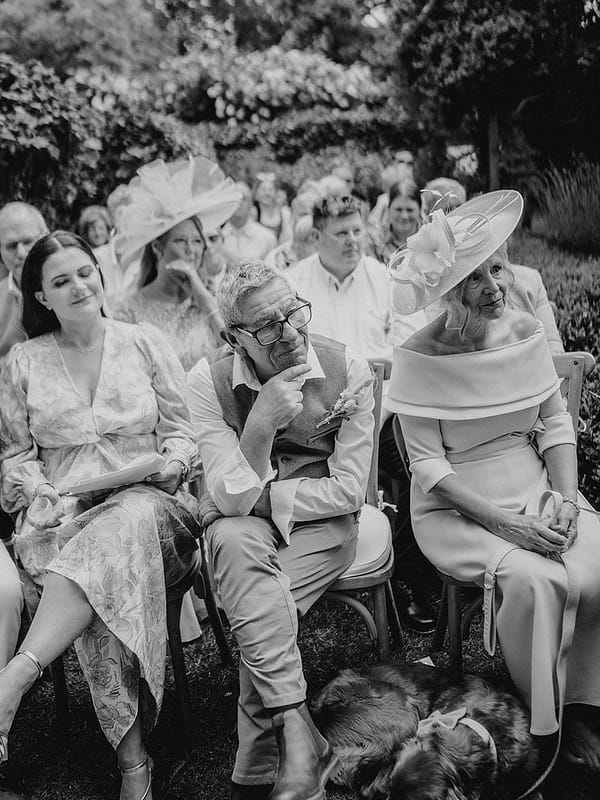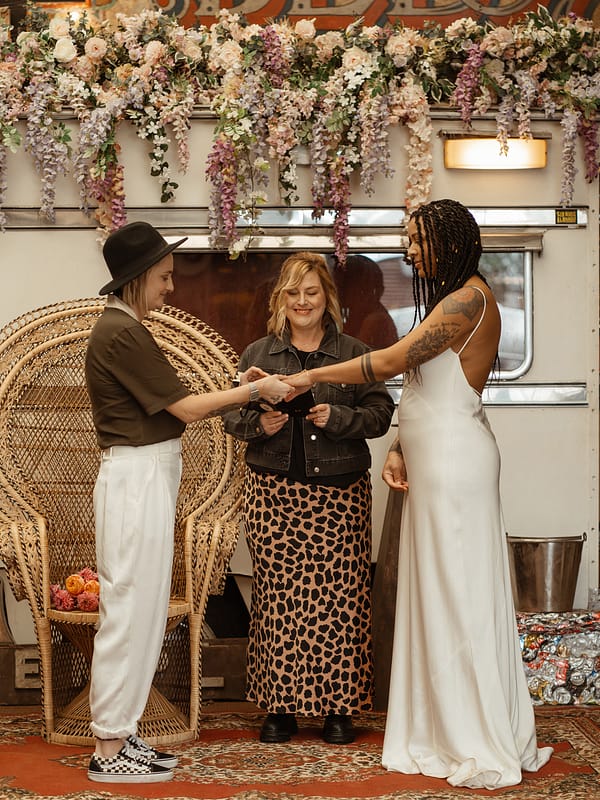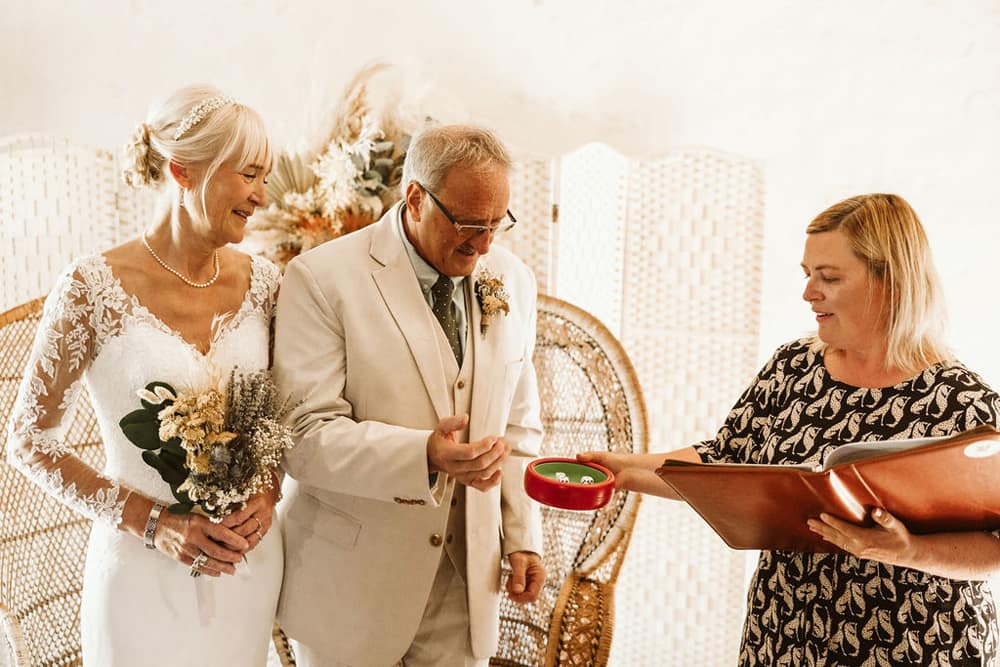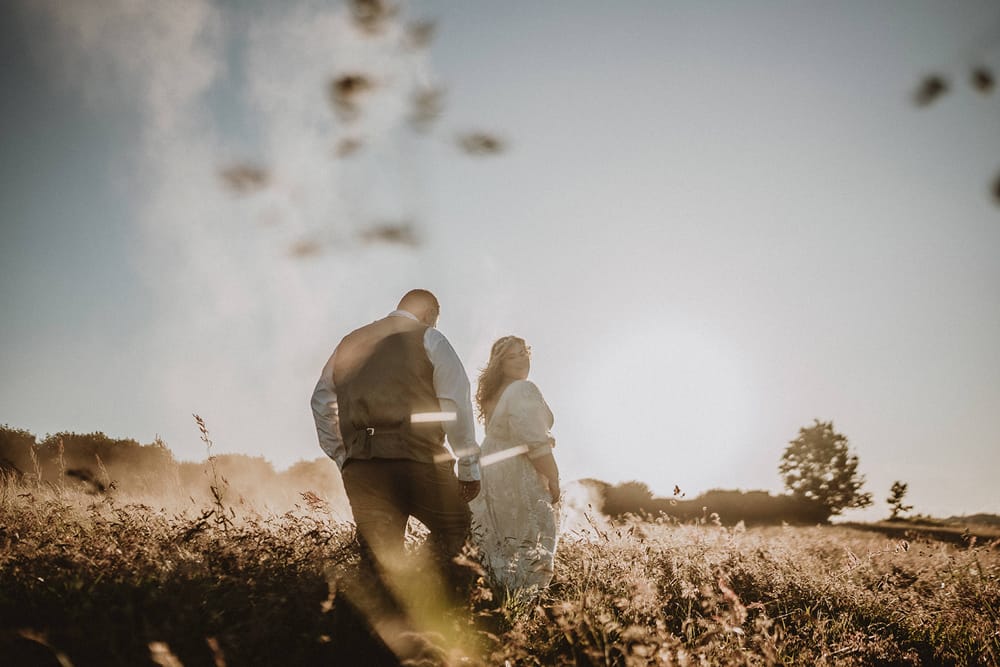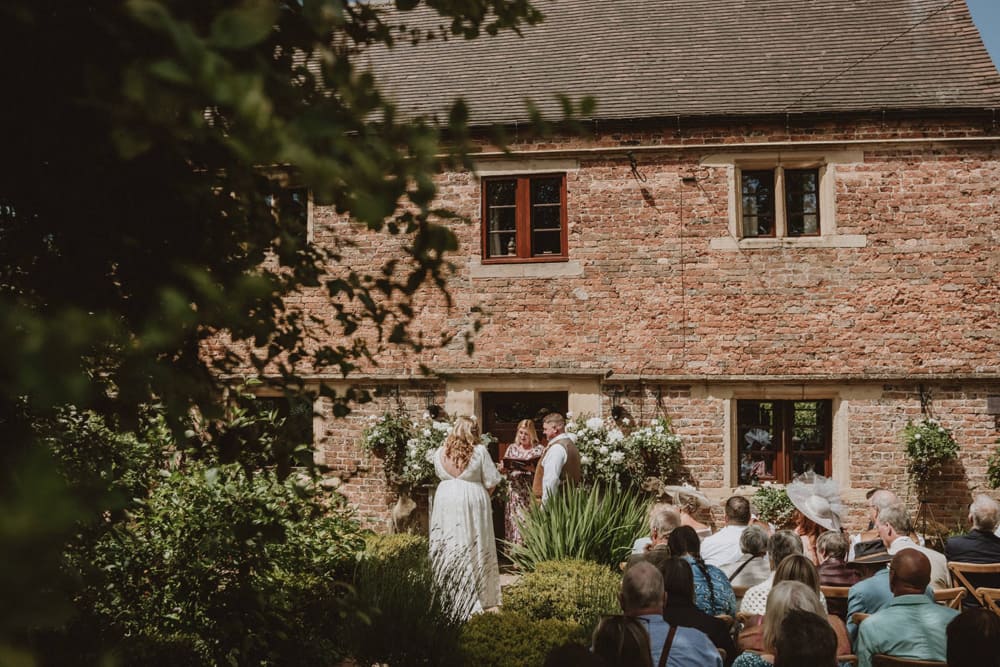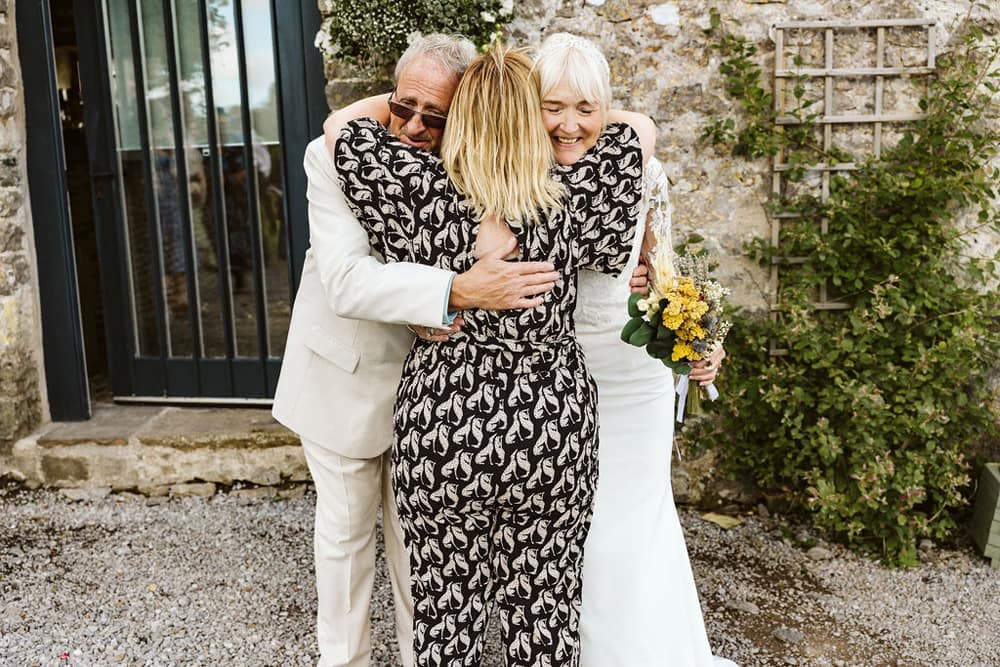While celebrant-led blessings are gaining popularity (hooray!), they remain less well-known than traditional legal ceremonies. Many couples default to registrar-led nuptials, unaware of the deeply personal and bespoke experience a celebrant can provide.
Enter Eleanor Willock, a seasoned celebrant dedicated to making your wedding ceremony unforgettable and the guest author of today’s informative and inspiring planning feature. She tailors each ceremony to capture the essence of your relationship, ensuring a unique and intimate experience for every couple.
If you’re looking for ways to infuse personalised and meaningful elements into your own special day, join us as we hand over to Eleanor, who is here to guide you through the benefits of choosing a celebrant and explain how opting for one can turn your wedding ceremony into a momentous and truly heartfelt celebration!
A wedding celebrant is pivotal in ensuring your marriage ceremony is uniquely yours, weaving your love story into the event witnessed by your family and friends. Celebrants are responsible for every detail, from writing and conducting the ceremony to managing the ring exchange, vows, first kiss, aisle walks, and the moment you are announced as a couple.
The journey with your celebrant begins as soon as you book your venue. We get to know you through meetings and calls, understand your vision for the ceremony, and provide ideas and inspiration to bring it to life. We suggest a flow for the ceremony and draft a detailed script, ensuring every logistical detail is covered.
On the day of your wedding, we are at the top of the aisle, ready with your vow booklets, script, and certificate of celebration, if desired. We keep your guests calm, happy, and informed, sharing essential information such as rules regarding phones and small children. After the ceremony, you can choose whether you’d like us to stay for a quick drink, leave immediately, or join you on the dance floor. Some couples have invited me to stay for dinner and speeches, while others prefer a quieter exit.
Personalisation
Every couple’s journey with a celebrant is unique. Our primary goals are for you to feel a connection with the person performing your ceremony and to trust that they will deliver one of the most important speeches of your life without a hitch.
How we achieve this varies. Some couples prefer regular chats on WhatsApp or sharing funny ideas on Instagram or TikTok. Others might opt for face-to-face meetings or video calls, especially if they are international clients. Here’s what one of my June 2024 grooms, Tom, had to say about the process:
“Eleanor made the whole experience of getting to know us fun and meaningful. We filled out an 11-page questionnaire that initially seemed overwhelming, but as we answered the questions, it brought back old memories and emotions. It includes activities that add a unique touch to the ceremony. Giving it your all is crucial because it forms the backbone of your ceremony. The more effort you put in, the more rewarding the experience.”
One of the most significant elements of your celebrant-led ceremony is the vows. Unlike a registrar-led ceremony, a celebrant allows you to write vows that are entirely your own. Writing vows can be challenging, so I offer guidance through my website’s Vow Vault, which includes tips and examples. If writing your vows feels daunting, I can help you, and if speaking them on the day seems overwhelming, we can use a “call and response” method where you repeat the vows after me.
The Legal Aspect
Currently, celebrants in England and Wales cannot conduct legally binding ceremonies. The government presides over who can legally marry, where, and with what words. This limitation means many people don’t get to choose how they commit to each other fully.
If you wonder about the point of a celebrant if it isn’t legal, consider that alternative wedding ceremonies often come with constraints you might not realise. Religious ceremonies might not be an option if you’re not a believer or of the same religion. Registrar-led ceremonies usually don’t allow personalised vows or ritual elements like handfasting. Additionally, legal ceremonies have restrictions, such as prohibiting alcohol consumption an hour before the ceremony and requiring dry legal questioning in a side room.
Celebrants like me put you at the centre of your marriage celebration. Our ceremonies can include laughter, tears, singing, readings, vows, rings, guest involvement, and personalised entrances and exits. No two celebrant ceremonies are the same.
Most couples choose to have a brief legal ceremony at a registry office before or after their wedding day. This can be as simple and cost-effective as a statutory ceremony, which takes about ten minutes and costs around £60. Some venues, like Sudeley Castle, offer the option to have your legal signing the day before your wedding celebration as part of your overall experience.
Types of Ceremony
Every wedding ceremony I write is unique, built entirely around each couple’s love story. While the structure might be similar, the tone and content are personalised. Celebrants excel at translating your relationship into words that reflect your tone, whether it’s humorous, romantic, or a mix of both.
I aim to create a warm, inclusive, and friendly atmosphere with a touch of natural humour. My ceremonies often feature personal references, in-jokes, poetry, and music. I also enjoy incorporating surprise elements—like when we played Yahtzee to decide who would go first with their vows or when I brought one of the groom’s power tools to the ceremony as a fun nod to his profession.
Raised and married in the Church of England, I deeply appreciate cultural and religious traditions without a specific affiliation. I love incorporating elements from my couples’ cultures into their ceremonies. For instance, I’m working with a Sikh bride and a Romanian groom to blend their traditions into a new, unique ceremony. Creating new traditions that reflect your journey together is one of the great advantages of a celebrant-led ceremony.
Reflecting You
Although I write and am responsible for your ceremony, its essence comes from your relationship. I listen to your values and hopes for marriage and observe how you interact, which helps me craft a ceremony that truly represents you.
I also like to speak with others important to you, such as your parents and the wedding party. This additional insight helps me capture your essence in the ceremony. Combining this information with the couple’s questionnaire ensures your ceremony is heartfelt and personal.
Coordination with Venues and Other Wedding Suppliers
Strong relationships with wedding venues and other suppliers are crucial. I strive to ensure my ceremony meets the venue’s expectations and provides a seamless experience.
Behind the scenes, I coordinate with key suppliers, such as your photographer, videographer, stylist, and florist. For example, I might ask your photographer for advice on the best shots during your ceremony and ensure we are positioned correctly. Your videographer might mic me up to capture the ceremony’s audio so I coordinate with them before you arrive. Even if I’ve worked at a venue before, I visit to ensure everything is perfect for your big day.
If you’re still planning and considering venues, check what they offer regarding the ceremony. Venues that value individuality, like Dewsall Court, won’t assume you want a registrar ceremony and will provide options for celebrant ceremonies. If a venue requires you to book a registrar date before securing your booking, consider the flexibility of a celebrant. Registrars can be busy, especially during peak wedding season, so a celebrant might be an excellent option to ensure you get your preferred date and venue.
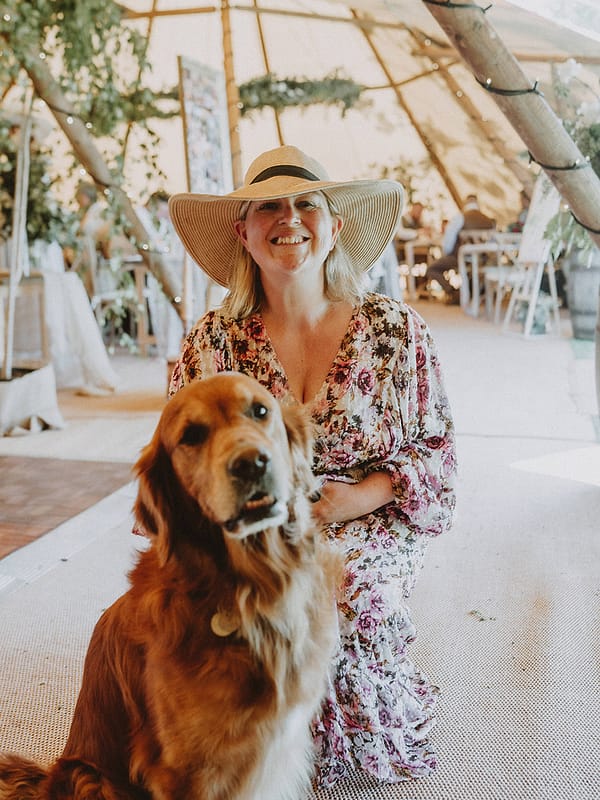
Image by <a class="text-p3" href="https://ameliajanephotography.com" target="_blank">Amelia Jane Photography</a>.
The Role of a Wedding Celebrant.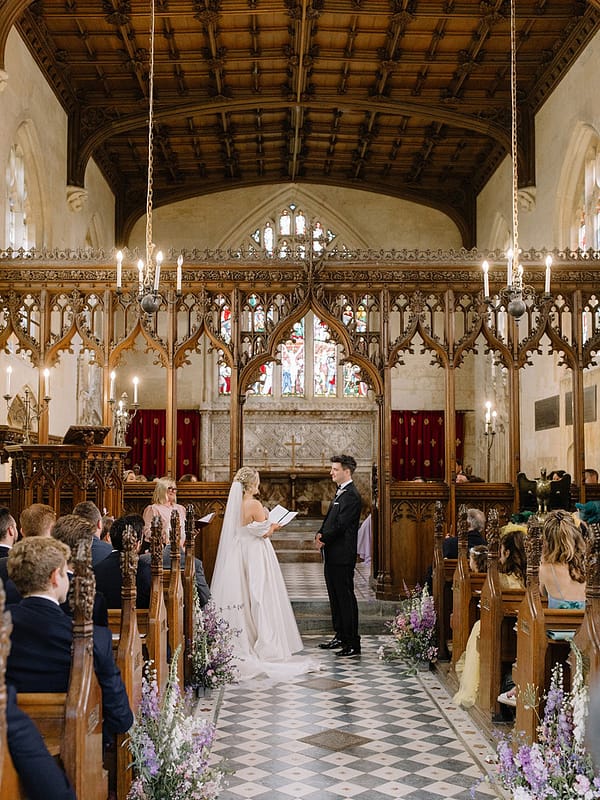
Image by <a class="text-p3" href="http://www.rebeccagoddardphotography.com" target="_blank">Rebecca Goddard Photography</a>.
The Role of a Wedding Celebrant.
Fees
Each celebrant has different inclusions and payment structures. My fee applies to the year you book me, not the year of your wedding, offering an economy in planning. Everything is included except travel outside a 50-mile radius of my home in Somerset and any additional ritual elements like a tequila toast or unity candles. The fee covers all meetings, rehearsal, script drafts, edits, vow assistance, and communication. A deposit secures your booking; the remainder is payable the month before the wedding.
How to Prepare for the Ceremony
I typically wait until we’ve completed our initial conversations and questionnaire before suggesting specific elements for your ceremony. However, if you already have ideas for readings, music, or rituals, I’m excited to hear them! Choosing meaningful readings and suitable readers can add a special touch to your ceremony.
If you’re writing your vows, I ask you to send them to me beforehand so I can include them in the script and place them in vow booklets for you to use during the ceremony. This adds a touch of elegance compared to reading from a piece of paper.
Including Family or Friends
Before the big day, let me know about any worries or social nuances you’d like me to be aware of. I encourage you to think about your closest family members and how we can make them feel special during the ceremony. Also, consider any guests with disabilities, hearing difficulties, or language barriers. We can ensure they have a script to follow or are seated appropriately. I’ll follow your lead on any limits you’d like to set for guests with children.
Last-Minute Emergencies
While it’s rare for a celebrant to miss a wedding, life can be unpredictable. I have four close colleagues who could step in if needed. My contract outlines the details of how this would work and the associated fees. It’s a good idea to ask your potential celebrant about their emergency backup plans.
When to Book
Key summer dates and months are often booked up a year in advance. If you’re planning an autumn or winter wedding, you might find availability within the same year. I think booking your suppliers early is always a good idea. If you’re considering a 2026 wedding, remember that many newly engaged couples start planning around Christmas, so things will book up quickly from here.
Cultural and Religious Traditions
My job is to celebrate who you are. While I’m not an ordained religious leader, I’m happy to work within your cultural and religious traditions. I’ve conducted Norse Pagan blessings, Welsh handfastings, South African Kola Nut ceremonies, and prayers and blessings from various religions. It’s always a privilege to be trusted with these elements, and I enjoy them.
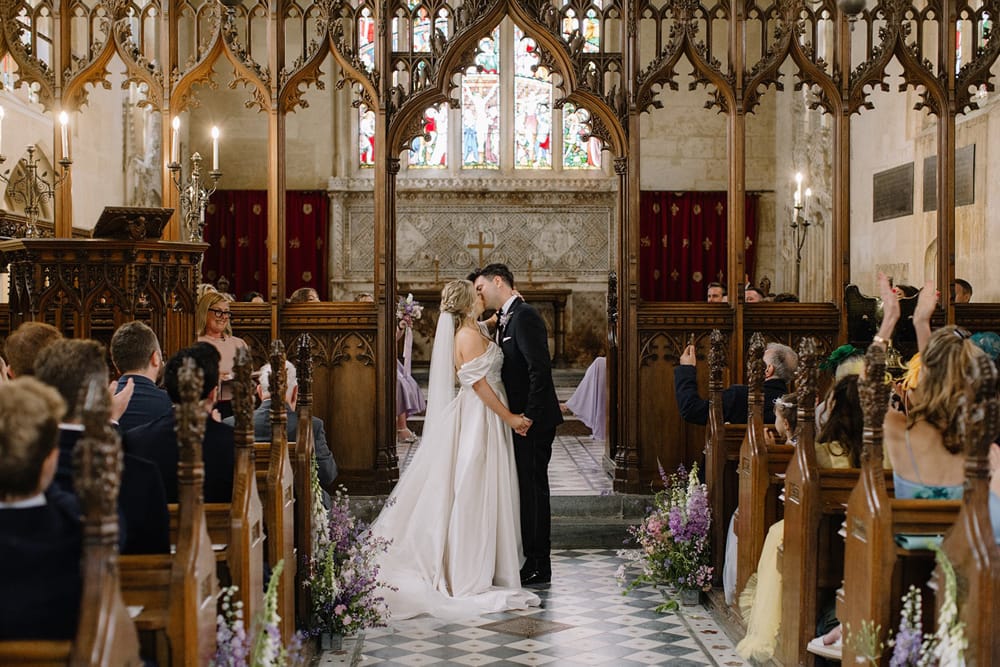
Image by <a class="text-p3" href="http://www.rebeccagoddardphotography.com" target="_blank">Rebecca Goddard Photography</a>.
The Role of a Wedding Celebrant.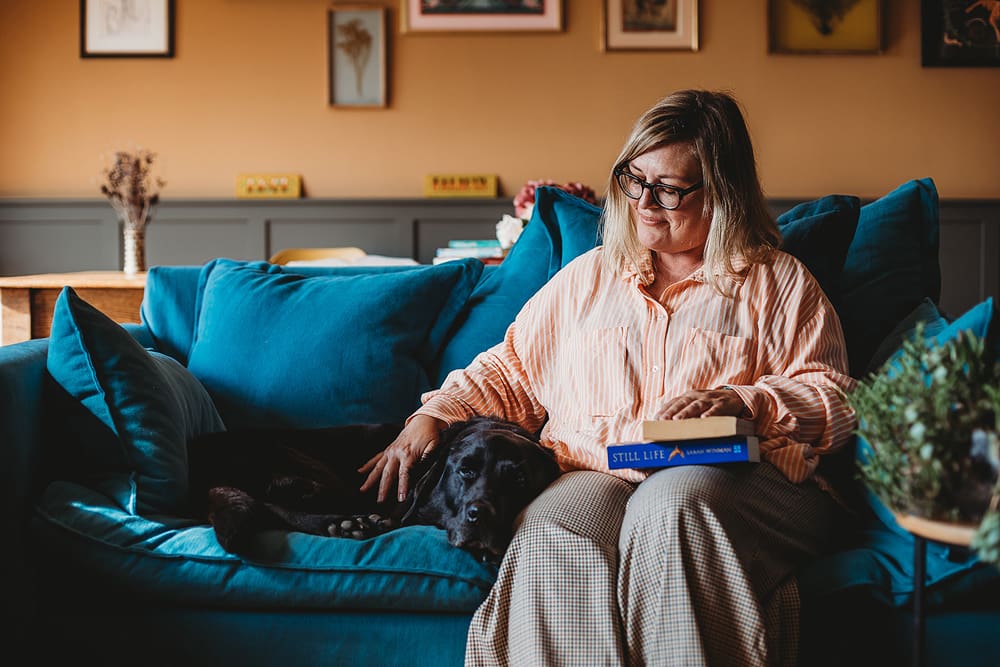
Image by <a class="text-p3" href="https://abigailoliverphotography.co.uk" target="_blank">Abigail Oliver Photography</a>.
The Role of a Wedding Celebrant.
Finding the Right Celebrant
How do you know if you’ve found the right celebrant? It’s simple: do you like me and believe I can create the wedding you’ve always dreamed of? You’ll likely know this during or after our first meeting. It works both ways; occasionally, I might feel I’m not the right person for you. It’s crucial that we are relaxed and entertained by each other’s company.
Venue Considerations
Celebrant ceremonies complement any venue. We don’t need venues to be licensed, opening up endless possibilities for unique settings. For example, the venues listed on Coco Wedding Venues are flexible and keen to provide a beautiful marriage experience.
